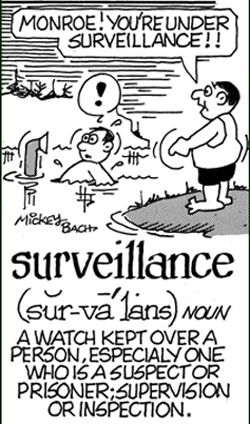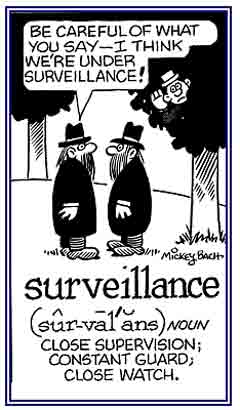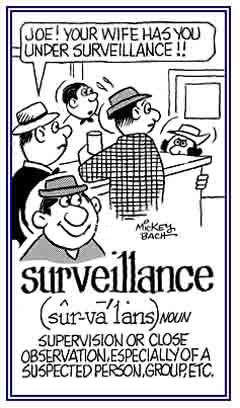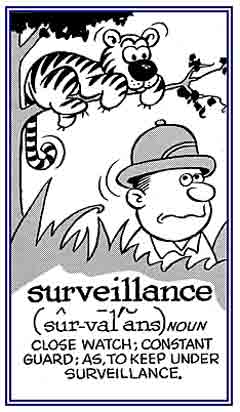vid-, video-, vis-, -vision, -visional, -visionally, visuo-, vu-
(Latin: videre, "to see"; plus words with other related meanings: to notice, noticing, noticed; observe, observing, observed; look, looking, looked; perceive, perceiving, perceived, perception; see, seeing, saw, seen, sight; view, viewing, viewed; manifest, manifesting, manifested; reveal, revealing, revealed, revelelation)
Although many of the words in this unit seem to be from other Latin origins, all of them are etymologically derived from the main Latin videre, "to see" element.
2. Concerning, or for the purpose of revision or making changes.
3. Having the power or purpose to revise
2. A musical variety show consisting of skits, dance routines, and songs that often satirize current events and personalities.
3. Etymology: "show, presenting a review of current events", from French revue, from Middle French reveue, literally, "survey, a reviewing, review"; from Latin revidere which came from re-, "again" + videre, "to see".
Motto of Saint Mary of the Plains College, Dodge City, Kansas, USA.
2. The perception of depth, distance, and three dimensionality arising from binocular vision.
3. Vision in which the visual fields of the two eyes are unified.
Sensations from a common object received by the two eyes are superimposed, and as a result of the slight differences in the fields and the superimposition of the fields, the effects of depth and shape of the object are determined.
2. A section of something which is itself complete but is part of a larger composition: The sports section of Karl's newspaper has a large subdivision in it on the weekends for its numerous athletic fans.
3. The process, instance, or state of being detached into parts again following earlier separations: The subdivisions of the menu listings indicated that certain foods were prepared with nuts which was important for customers who might have allergies.
A term used at a coroner's inquest of dead bodies.
2. In education, an official responsible for assisting teachers in the preparation of syllabuses, in devising teaching methods, etc., in a department of instruction; especially, in public schools.
3. In some U.S. states; the chief elected administrative officer of a township, who is often also a member of the governing board of the county.
2. Involving, or limited to supervision or the administration of people in work places.
3. Forming part of an operating system, which provides services for and controls the running of user programs.
Although the following cartoon is for a noun, it still illustrates the meaning of this verb entry.

Go to this Word A Day Revisited Index
so you can see more of Mickey Bach's cartoons.
2. The act of keeping a careful eye someone or something in order to detect or to prevent any kind of felonious act or to provide evidence of such actions: The surveillances provided by the bank's video cameras helped to identify the bank robbers.
Electronic surveillances are being utilized by more cities around the world in order to apprehend lawbreakers who are involved in illegal activities.
3. Etymology: from French surveillance, "oversight, supervision, a watch"; a noun of action from surveiller, "oversee, watch"; from sur-, "over" + veiller, "to watch" from Latin vigilare, from vigil, "watchful, awake, wakeful".


Go to this Word A Day Revisited Index
so you can see more of Mickey Bach's cartoons.
2. Etymology: from Latin sur, "over" + veiller, "watch" or vigilare, "to keep watch".


